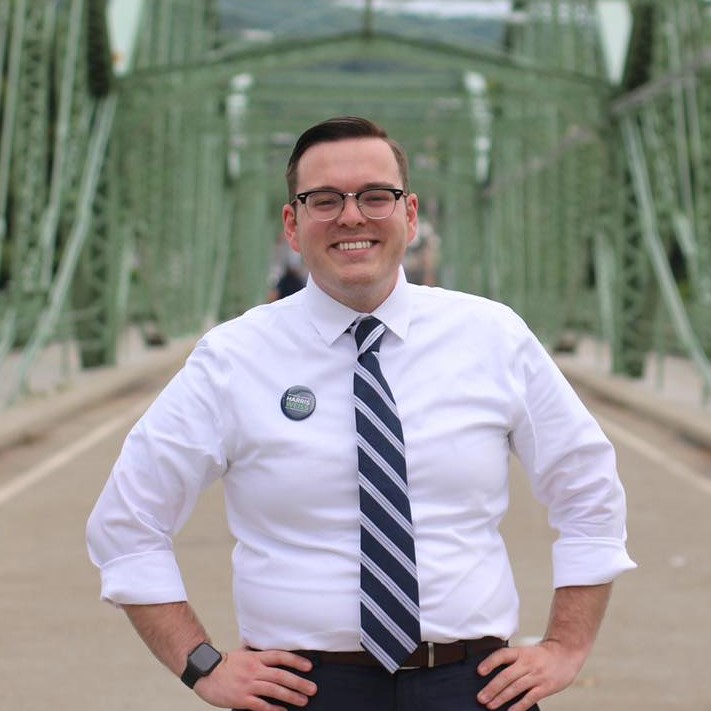Harris Weiss, ‘16, is the Democratic and Working Family Party candidate for Broome County clerk. Weiss has worked alongside former Congressman Anthony Brindisi, and currently works as the communications director for Assemblywoman Donna Lupardo. Weiss has also contributed to local politics in the Southern Tier in a variety of ways including helping in the distribution of vaccines in Broome County, keeping the [Binghamton] Rumble Ponies in Broome County and helping local residents claim their unemployment benefits. In addition to this, Weiss is is the director of sponsorships for the LUMA Projection Arts Festival.
1. Why are you running for Broome County clerk?
“I am running to refresh the county clerk’s office and bring a new perspective to county government. We need to make government services more accessible and modern, while also making [them] more transparent. When COVID-19 shut us down, the clerk’s office shut down. Much of their information is not available online. This is simply unacceptable in 2021. We need to do a better job providing access to government information online and through more modern technologies. It’s also a transparency issue. Trust in government is at an all-time low, partially because of lack of access to information. As clerk, fixing this will be one of my core priorities. I also want to do my part to depoliticize government as much as possible by eliminating politically appointed positions in the clerk’s office. The past couple of years have shown us what happens when too many politically appointed people run our government and our bureaucracy. We need to bring in the best qualified people to run the office — not the best connected.”
2. How would you describe the role of county clerk to a resident or student who might not be sure what the office entails, or why it is important?
“The Broome County clerk is the central point of access to legal and other vital county information. It is where you go to file property, legal, military and other forms of records. It is also the office in charge of the [Department of Motor Vehicles] locations within Broome County. An office like this is important because it is many people’s access point to government. It is not an inherently political position — it’s more bureaucratic with the focus of helping people navigate government. I want to use my experience working for Congressman Anthony Brindisi and Assemblywoman Lupardo where I did just that, helping solve people’s issues and getting people where they need to go to solve those issues.”
3. In your opinion, what is the most pressing issue that Broome County residents face at the moment and why?
“While I believe the most pressing issue in Broome County is poverty and access to opportunity, the most pressing issue that the clerk’s office can impact is government accessibility. Far too much information is sitting in boxes collecting dust in storage facilities. When [COVID-19] shut government down, it shut down access to this information. I want to digitize all public documents so that you can access all that information online. Nobody should be able to gatekeep information. It’s a transparency issue, and an accessibility issue. We live in the 21st century, and our government should feel like it with the kind of technological access we can and should provide.”
4. How do you plan on engaging with and incorporating the community in this role?
“As county clerk, I want to bring more voices, especially those that are underrepresented, into government. We need to bring people more people with cultural, economic and racial backgrounds into government because across the board we need it. I plan to do this by partnering with not-for-profit organizations and local schools to provide apprenticeship programs in the clerk’s office to give people work experience. There are many jobs that are available — even some that don’t require a college degree — through civil service, and we should be helping people study for and prepare for the civil service exams. If we do this, we can unlock so much potential growth to ensure there is more racial and economic parity in local government. I also plan to create advisory committee with constituents, stakeholders and government officials in order to find new and better ways to serve the community in the clerk’s office. We need to bring more voices into the government process through direct democracy and my hope is to use these advisory boards to do just that.”



